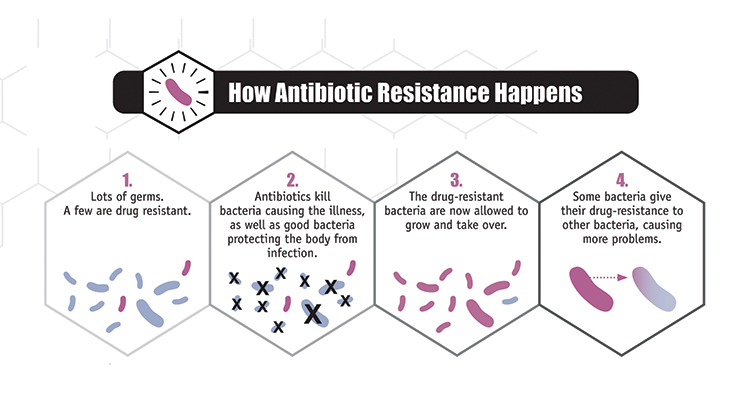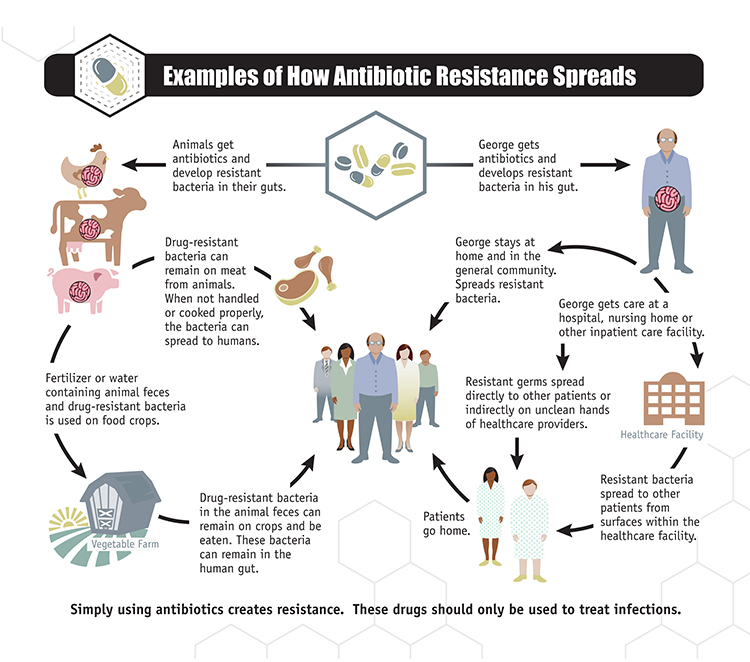Antibiotic-Resistant Bacteria
February 12, 2018
At some point of our lives, most of us have used an antibiotic in some form or fashion.
Antibiotics, or antimicrobial drugs, are drugs that fight off bacterial infections in humans and animals. An antibiotic makes it difficult for bacteria to multiply, or simply kills it. Antibiotics do not have any effect on viruses.
Antibiotics and Bacteria
Although antibiotics save many lives, they are also a main contributor to the development of antibiotic-resistant bacteria. Antibiotic-resistant bacteria is bacteria that is able to protect itself from an antibiotic. Bacteria becomes resistant when its genes become mutated, usually through rapid replication. The CDC estimates there are two million people effected, with close to 23,000 deaths in the United States, annually, by antibiotic-resistant bacterial infection.
One might think the obvious solution would be to create a different antibiotic. This is not always the case. Bacteria reproduces rapidly, so the chance of a mutation and resistance against the new antibiotic are high. Usually, this process creates even more resistant bacteria strains, leading to a “superbug.”

Antibiotic-resistant bacteria usually leads to more serious infection, more complication, and can be fatal. This is why it’s important to keep an eye out for infections like Staphylococcus Aureus Bacteria. There isn’t a “magic medicine” for a superbug, but there are ways to slow down the growth of antibiotic resistance. Here’s how:
- Understand that viruses cannot be treated with antibiotics.
- Tell your doctor if you need antibiotics if necessary.
- Always,always, always take the correct dose of your antibiotic, exactly as instructed by your healthcare professional.
- Educate others about antibiotic resistance.

There are other contributors to the growth of antibiotic resistance. Take, for example agriculture:
The main reason for an antibiotic to be used in food animals is to promote animal health. Usually, animals are given antibiotics in low doses, which makes the perfect recipe for antibiotic resistant-bacteria. Thus, numerous antibiotic-resistant bacteria are included in our meat and poultry – bacteria which dies in the cooking process (cook your meat all the way through)!
Farmers provide antibiotics to their farm animals to increase the quantity and quality of food production. The World Health Organization suggests better use of vaccination and periodic changes in animal housing, which can greatly improve livestock’s health without the use of antibiotics.
We realize this all sounds gross, but antibiotic-resistant bacteria isn’t something to be panic about. As always, educating yourself and making smart decisions is the key to staying healthy.
